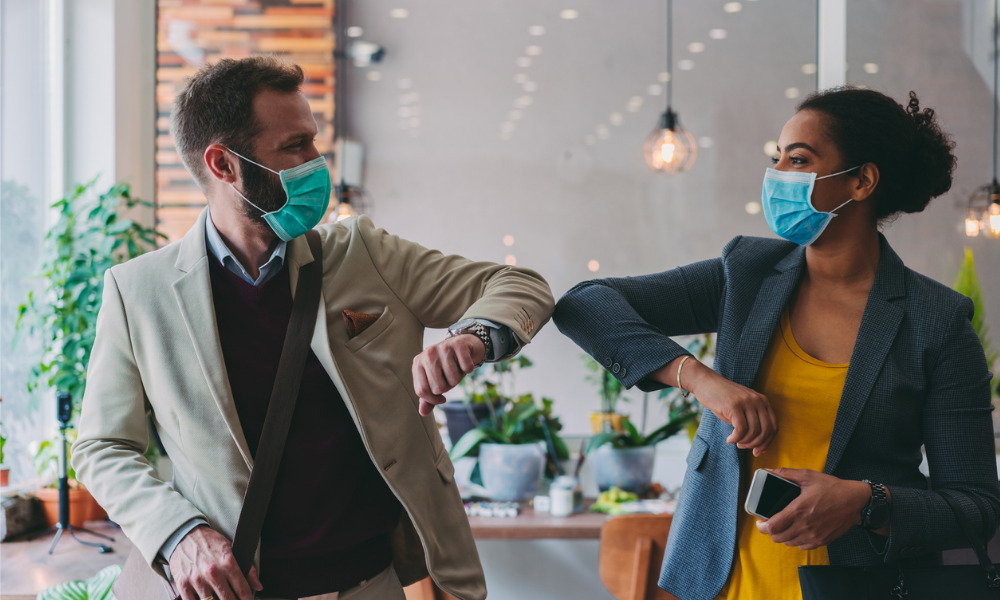Keeping workers safe and ensuring customers’ business continuity were main concerns

With the one year anniversary of the pandemic last week, businesses and organizations are reflecting on the momentous changes of the last year. It has been a struggle for companies big and small, with some faring better than others thanks to effective strategies put into place from the outset of the pandemic. This is the case for supply chain risk management experts, Avetta.
Aaron Wattam, Chief Human Resource Officer at Avetta, says that the approach that they took was to ensure that first and foremost they were keeping workers’ bodies safe and their minds healthy.
Despite the difficulties posed by the pandemic, and by running a global business, “we were very quick to respond and have our employees across the globe work from home,” says Wattam.
One of the biggest challenges of the pandemic, one which is still very much an issue, is that due to the unpredictable nature of the virus, recovery plans need to be adaptable as guidelines and safety measures are constantly changing.
“A lot of our strategy evolved over time as the light at the end of the tunnel kept getting punted out,” says Wattam.
Bodies safe, minds healthy
Nevertheless, to their credit, Wattam says that Avetta actually already had business continuity plans in place. As working from home became the new norm rather than a temporary fix, Wattam says that the company made numerous changes to accommodate and ensure worker safety.
For example, he says that they added some additional expense stipends for their employees to ensure that they had appropriate ergonomic set-ups at home.
Wattam recognizes that the nature of their business gives them an advantage: “Being a tech company, we’ve had the luxury in being first off the ship in terms of getting out of the office, understanding best practices and avoiding other companies’ mistakes,” he says.
Initiatives have also focused on increasing communication with employees: “Very early on [in the pandemic], we did realize that by not having that interaction in an office, we were missing out on employee connectivity,” says Wattam.
He says that they organized multiple company-wide meetings every week, both information and Q&A sessions, which were an opportunity for hundreds of employees to hear from each other. Wattam says that once it became clear to Avetta that the pandemic was going to last longer than expected, they “started to encourage far more digital events.”
This included sponsored department-level lunches and social events to keep some sort of connectivity within teams.
Finally, “as the pandemic wore on, we decided to reach out personally to each and every person that works for us,” says Wattam, “asking ‘how are you, what support do you need?’”
Extending a helping hand
Scott Nelson, Director, Global Marketing at Avetta, agrees with Wattam, saying that the well-being of the employees was top priority and that the company was in a good position to handle pandemic risks – and to offer help to others.
“If you look at what we do as a company, our goal is to help mitigate risk in supply chains,” says Nelson. “We have leadership that understands that we need to be prepared for these kinds of things. It didn’t feel like a huge disruption at all, it just felt like everything was in place.”
“From my perspective, because we knew what to do and how to handle this, it enabled us to be able to extend this to our customers,” he says.
“Customers looked to us to provide guidance and leadership, and I think the proof is in the pudding,” Nelson says, pointing towards the huge success of Avetta’s whitepapers and webinars, for example.
Indeed, Avetta has made available a number of resources for anyone interested, notably through their resource library. Additional resources include business continuity templates (link to download here), and a guide to COVID-19 and supply chains.
For all this and more, Avetta was recognized with two Stevie Awards in February (the virtual awards ceremony will take place on April 14) for their efforts to educate supply chain partners during the pandemic.





